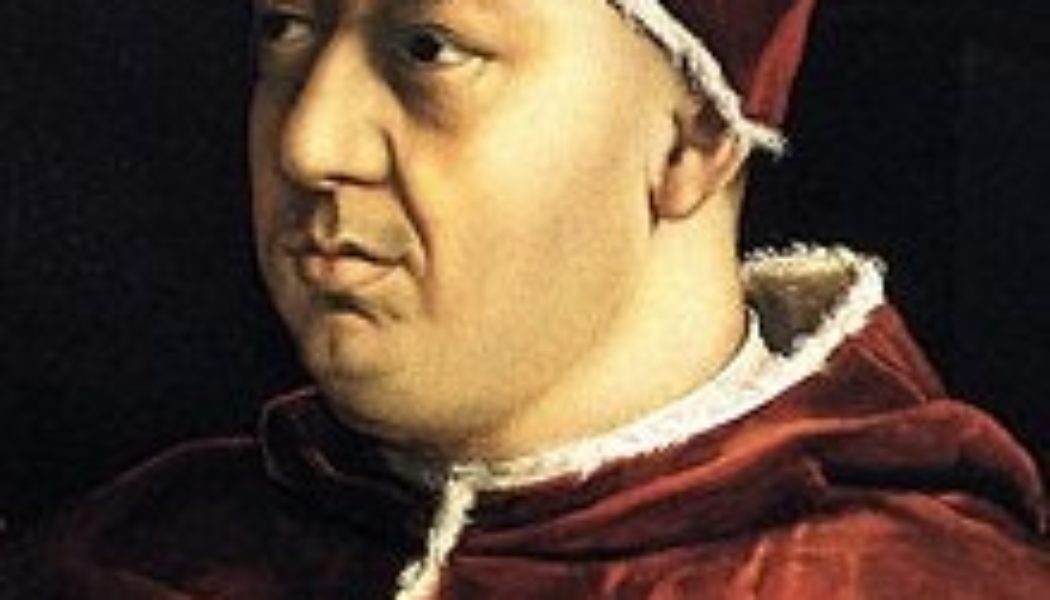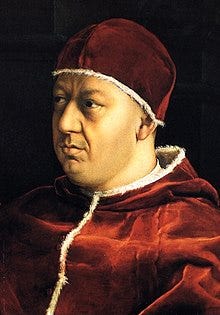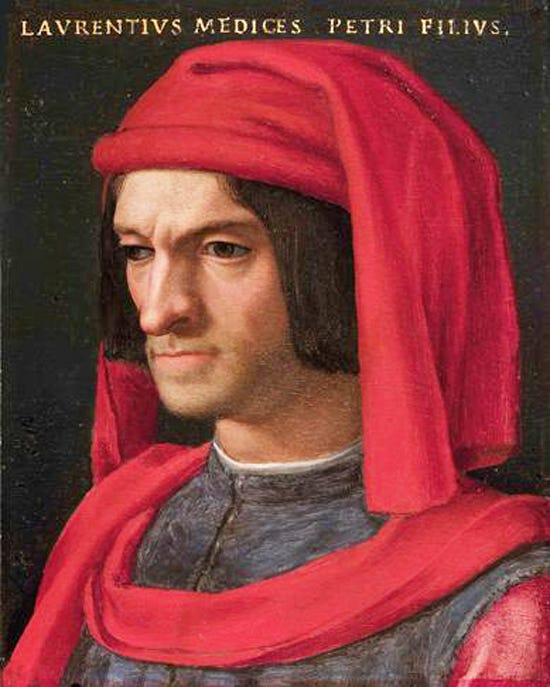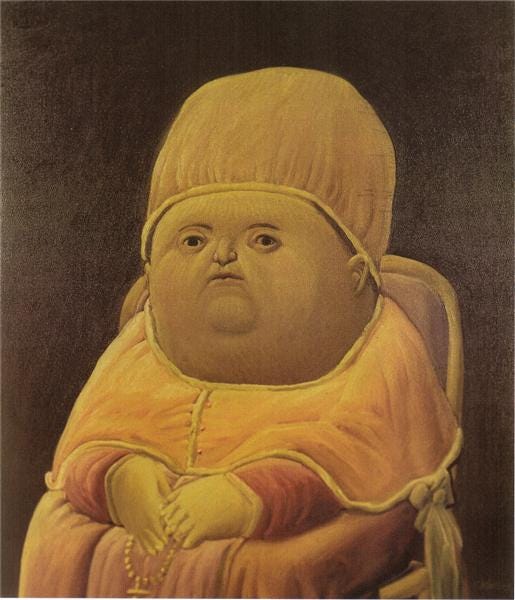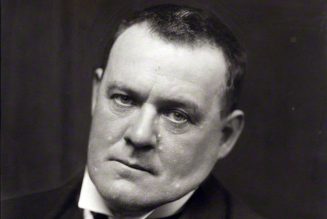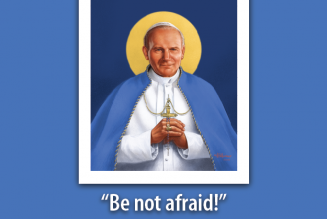Today in Papal History – March 9 – one of the worst popes the Catholic Church had ever seen ascended to the Chair of St. Peter: Pope Leo X.
Just how bad was he?
Well, we’re still talking about him half a millennium later, for one. Although, to say nothing of the fact that his surname Medici has become synonymous with Renaissance corruption and derelict influence in papal affairs, Leo X was somewhat doomed from the start.
Not-so-humble Beginnings
He was born Giovanni de Medici in Florence in 1475, to one of the most powerful and renowned Roman families in history and was put on the fast track to clerical life rather quickly, given the decades-long Medici rule over the region.
Giovanni received the tonsure (the shaving of the crown of one’s head when joining a religious order) at 7 years old, and was made abbot of the monastery of Font Douce the next year at the wise age of 8 years old.
Of course, such an assignment – known then as a benefice – was effectively just to give the office holder a cushy income, and Giovanni’s powerful father, Lorenzo the Magnificent, made a habit of collecting benefices for his young son to pad the family income. In addition to Font Douce, Giovanni was also given possession of the Abbey of Passignano at age 9 and of Monte Cassino at age 11, in 1486.
But that wasn’t enough. Young Giovanni was named a cardinal at age 13(!) after Lorenzo leaned on Pope Innocent VIII – another member of the family.
He did have to wait three years to be officially initiated into the College of Cardinals – because 16 is totally old enough – and all the while was receiving the best education in theology and canon law that money could buy.
To Giovanni’s credit, The Catholic Encyclopedia notes how “The Romans found the youthful cardinal more mature than his age might warrant them to expect,” and how Lorenzo wrote his teenage son a letter, where he “enjoins upon his son certain rules of conduct, and admonishes him to be honorable, virtuous, and exemplary, the more so as the College of Cardinals at that time was deficient in these good qualities.”
The Life of a Medici Cardinal
Giovanni’s father died just a month after his elevation to the cardinalate, which beckoned him back to his hometown of Florence. He would return to Rome for the papal conclave of 1492 – incidentally the first ever to be held in the Sistine Chapel – where he would oppose the election of possibly the worst of bad popes, Alexander VI.
Following the conclave, he returned to Florence, only to be expelled following a local uprising protesting his family’s half-century rule over the area. Cardinal Medici fled the region in the habit of a Franciscan friar, and would bounce around Germany, the Netherlands, and France for the better part of the following decade.
At the turn of the century, he returned to Rome – being welcomed by Alexander VI on the surface, but merely tolerated beneath it. He spent the next few years immersed in arts and literature, being a patron of it where it could, but apparently being reduced to pennies due to being terrible at managing his own finances – something we haven’t heard the last of.
Thankfully, Giovanni was still keeping in mind the advice his father had given him all those years earlier, and conducted himself with dignity and conduct beyond reproach –which made him quite popular among his fellow cardinals and other contemporaries.
It was those traits and good timing that brought him favor with the ailing Pope Julius II – Giovanni’s own ambition to be the next pope certainly didn’t hurt. He was sent to Bologna and Romagna in 1511, then was assigned to the papal armies the next year –something H.W. Crocker recounts in his great book Triumph as, “an odd task for such a jovial and well-fed man, as he was known to be.”
All this culminated in the Medici family being restored to power in Florence in late 1512, foreshadowing the good fortune that was about to continue for the 38-year-old cardinal
One of the worst papacies (literally) ever
Julius II died on February 21, 1513, and 18 days later Giovanni would become Pope Leo X, the 216th successor of St. Peter. Supported by most of the younger cardinals in conclave, his election was apparently met with pretty high hopes on the part of many diverse groups Leo had been chummy with – politicians, artists & scholars for whom Leo had been a patron, and theologians alike.
The Catholic Encyclopedia has perhaps at the same time the most savage and most picturesque description of this pope’s appearance and demeanor. It reads:
“Leo’s personal appearance has been perpetuated for us in Raphael’s celebrated picture at the Pitti Gallery in Florence, which represents him with Cardinals Medici and Rossi. He was not a handsome man. His fat, shiny, effeminate countenance with weak eyes protrudes in the picture from under a close-fitting cap. The unwieldy body is supported by thin legs. His movements were sluggish and during ecclesiastical functions his corpulence made him constantly wipe the perspiration from his face and hands, to the distress of the bystanders. But when he laughed or spoke the unpleasant impression vanished. He had an agreeable voice, knew how to express himself with elegance and vivacity, and his manner was easy and gracious… His contemporaries all praised and admired Leo’s unfailing good temper, which he never entirely lost even in adversity and trouble. Himself cheerful, he wished to see others cheerful. He was good-natured and liberal and never refused a favour either to his relatives and fellow Florentines”
Unfortunately for Leo, it wasn’t so much that he was an impious man – many contemporaries, including his enemies, agree that Leo was committed in his recitation of daily prayers and solemn celebrations – it was just that he’d perhaps gotten a bit too used to the Medici lifestyle to give it up after becoming pope.
As a side note, it’s actually unfounded that Leo X, upon his election to the papacy, exclaimed, “Let us enjoy the papacy since God has given it to us”.
But it certainly wasn’t inaccurate, and the word “enjoy” may be putting it too lightly. Leo spared no expense when it came to the size of his court, the banquets and extravagances he provided, and the pleasure he sought. Thankfully his generosity didn’t discriminate for actual charitable works – he equally lavished gifts on convents, hospitals, schools, pilgrims, and the like – but before it was said and done, one author quipped that Leo had “consumed three pontificates; the treasure of Julius II, the revenues of his own reign, and those of his successor.”
Incredibly, Julius II’s vast sums had was entirely depleted in just TWO YEARS. Leo never recovered from the financial embarrassment.
By today’s standards, Leo X apparently spent the equivalent of $675 million dollars in the 8 years that he was in the Chair of Peter, out of just the papal office alone.
To his credit, Rome under Leo X flourished as a bastion of culture in such a way that hadn’t been seen in centuries. Indeed, historian Will Durant writes that the sheer “quantity of culture” had never been equaled, “not even in Periclean Athens or Augustan Rome.” Leo had surrounded himself with such figures as Leonardo da Vinci, Michelangelo, Raphael (who was supposedly his favorite), Bramante, Ariosto, and others, and either commissioned or finished great works like the famous Raphael Rooms that can still be seen in the Vatican.
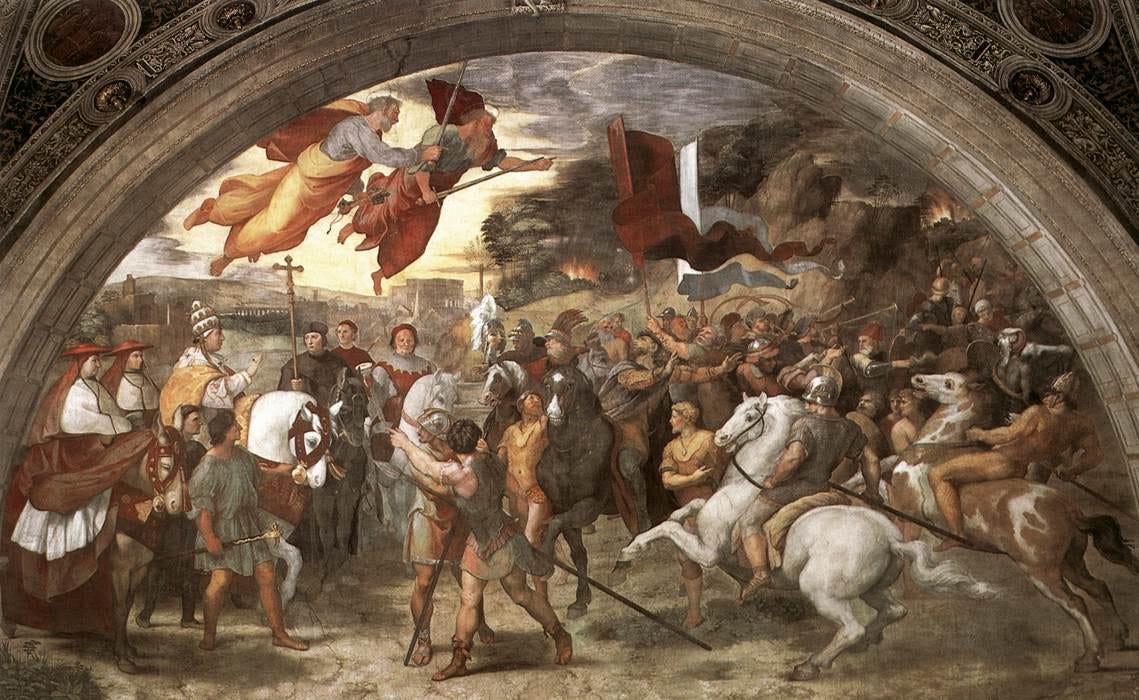
But such extravagance for its own sake is never without consequences. When Leo went broke, his fundraising schemes – including the irresponsible manner of selling indulgences throughout Europe – would spark the ire and denunciation of one Martin Luther, an over-scrupulous German monk.
We all know the story of Luther’s 95 Theses, nailed to the door of Wittenberg Cathedral some 500 years ago. But few know the part that Leo played in spurring that along – namely that Leo did nothing to really stop the growing Protestant sensibility. At least nothing that really helped.
It’s as though Pope St. Paul VI’s words were ringing in the ears of those who were looking first at Leo’s deeds, no matter how good or pious or true his words denouncing Luther as a heretic were:
“Modern man listens more willingly to witnesses than to teachers, and if he does listen to teachers, it is because they are witnesses.”
And Leo X’s witness was clear enough. He was at the same time too wrapped up in imperial elections in France and with his own obsession with worldly pleasures to toss much more than a couple strongly-worded letters in Luther’s direction.
Of course, the seeds of the Reformation – or the Protestant Revolt, as it’s also been called – had been sowed for centuries, so it was surely not all Leo’s fault. But it was still, unquestionably, the most cataclysmic event for the Church since the fall of the Roman Empire.
A bad pope, but an okay guy?
In terms of Leo X’s personal conduct – though his depth of spiritual life could hardly have been more than the kiddie pool – he’s nearly universally praised.
David Hume, the prominent philosopher, said of the pope that he was:
“one of the most illustrious princes that ever sat on the papal throne. Humane, beneficent, generous, affable; the patron of every art, and friend of every virtue.”
Even Luther himself(!) conceded, in a conciliatory letter to Leo,
“Indeed, the published opinion of so many great men and the repute of your blameless life are too widely famed and too much reverenced throughout the world to be assailed by any man, of however great name, or by any arts. I am not so foolish to attack one whom everybody praises.”
So in the end, it’s just rather sad.
Leo X appears to have possessed some real promise, and perhaps if he were born in a different age or with a different family background, he may well have been a better pope.
But then again, God’s grace is sufficient, and it’s up to us to recognize and accept or reject it in order to move our life toward greater holiness, or not.
And Pope Leo X was no exception.
Join Our Telegram Group : Salvation & Prosperity
